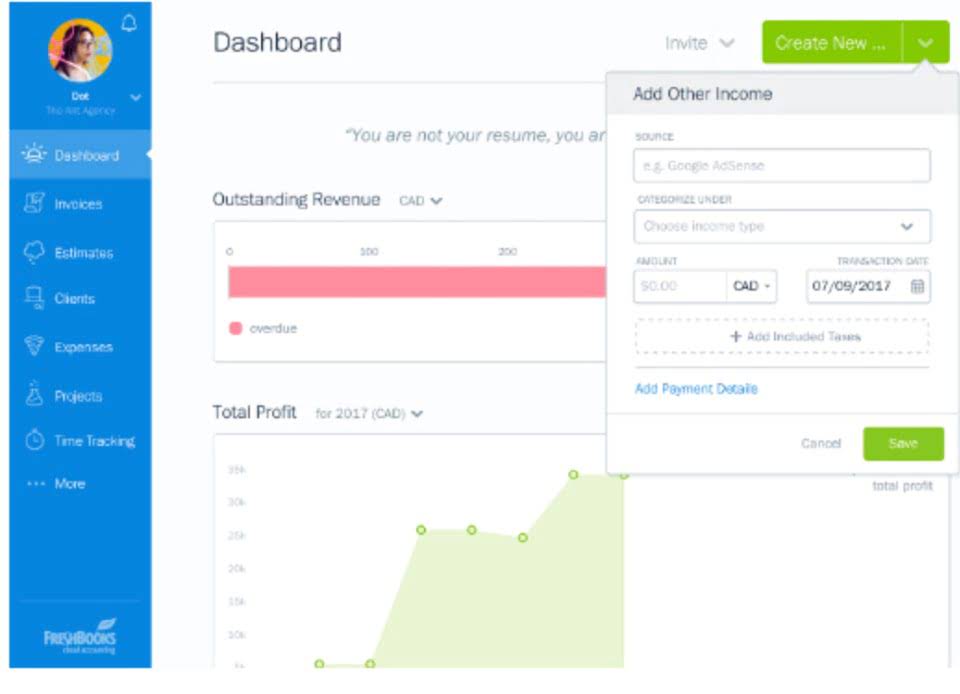The power of AI: What accounting and tax professionals need to know

AI can also help with document management, enabling auditors to easily locate and access relevant financial records and data. One of the most significant ways that AI is creating new job opportunities is through the development and deployment of AI systems, cloud-based systems, or AI-powered tools. This AI creates questions for accountants to send to clients or modify, saving them time and effort from retyping. Therefore, CPAs are still essential for decision-making and complex accounting tasks that require human oversight and maintenance to ensure accuracy and ethical use. Artificial intelligence (AI) can perform various tasks related to accounting, such as data entry, analysis, and report generation. PeakSpan provided the equity portion of the raise while Encina is offering the $150 million credit facility.
Machine learning in accounting

Automated and recurring billing solutions enable quick customer billing and improve the collections process with systematic billing and revenue tracking that reduces manual effort. To succeed in the future, accountants must also adopt the latest technology and learn how to leverage its benefits. Account reconciliation is an https://www.bookstime.com/ essential task in accounting, but it can be time-consuming and prone to errors. AI can automate this process by comparing account balances and transactions, identifying discrepancies, and suggesting appropriate adjustments. I’m an entrepreneurial CPA that founded Xen Accounting, a100% cloud-based accounting firm, in 2013.

Artificial intelligence in accounting: market trends for 2025 and beyond
Let’s say a prospective client has questions about your accounting services. Instead of sending you an email, they type their question into the AI chatbot. The bot gathers key information from the potential client, analyzes it, and decides whether they’re a fit for your business. From there, AI in Accounting they can fill out an intake and schedule a discovery call in your calendar. “If you don’t start using AI, you will be replaced by accountants that use AI,” says Brian Clare, CEO and founder of Blueprint Accounting. AI is transforming traditional practices into dynamic and efficient systems.
- The solutions include advanced automated general ledger account coding of supplier invoices in accounts payable, and its Ask Pi digital assistant.
- AI is also able to flag data or fields that may need additional human verification.
- There’s no getting around the fact that AI is here, whether you like it or not.
- Another great way accountants can use AI technologies is to improve client communications.
- “If you don’t start using AI, you will be replaced by accountants that use AI,” says Brian Clare, CEO and founder of Blueprint Accounting.
- We use Dext Precision which helps us ensure accuracy in our financial reporting for clients, by identifying discrepancies and inconsistencies in clients’ records.
Enhanced Data Analysis and Predictions
This particular CPA firm pulled an extract from the general ledger and 22,000 entries were flagged as manual journal entries. No human could go through every one of those and say whether they were indicative of fraud. Recent developments in artificial intelligence (AI), including the emergence of Generative AI, are leading businesses to evaluate AI’s potential impact to their business technology strategy. Financial services institutions are undergoing transformative change, and accounting and finance professionals can play essential roles. Karbon AI is an award-winning artificial intelligence feature within Karbon’s practice management software.

- Artificial intelligence (AI) is becoming a real and prevalent part of our everyday lives, especially for many of us in the accounting industry.
- Artificial intelligence has transformed various industries, including accounting.
- These challenges can be handled by developing clear ethical guidelines and policies regarding the application of Generative AI in accounting and maintaining human oversight for sensitive outputs.
- Overdependence on AI can lead to complacency and a decline in accountants’ critical thinking skills.
- While it’s true that AI technology has brought about significant change, it’s certainly not a harbinger of accountant extinction.
- To help you navigate technological innovation, we’ve created this guide with essential insights into its true potential.
As AI technology grows and the accounting industry discovers different accounting software can help hasten the repetitive tasks for accountants. I believe AI empowers accountants to focus on higher-value tasks, providing strategic advice using insights from tools like Silverfin Insights. We use Dext Precision which helps us ensure accuracy in our financial reporting for clients, by identifying discrepancies and inconsistencies in clients’ records. Down the line, I expect AI tools will give real-time financial advice using live data, giving businesses the edge to make quick, informed choices. Combining AI with blockchain might just change transaction security and transparency, although that’s still in the early days. While the technology available to accountants is rapidly changing, so are the needs of their clients.
Next, let’s understand how these applications benefit the accounting industry. According to a report by Mordor Intelligence, the market value of AI in accounting is expected to reach an impressive $6.62 billion by 2029. This surge is driven by AI’s ability to enhance accuracy and efficiency across various accounting tasks. Finally, even the software vendors themselves are telling the world that their AI offerings aren’t really there yet. Which is why you’re not seeing a lot of AI in the technical capabilities of these accounting applications. Even with all the hubris around the “transformative impact” of AI, what’s telling to me is that these new AI “features” really aren’t featured very much in these companies products.
- AI-driven insights can also help you provide more valuable and actionable advice for your clients, like identifying cost-saving opportunities or highlighting areas for growth.
- Down the line, I expect AI tools will give real-time financial advice using live data, giving businesses the edge to make quick, informed choices.
- This can significantly streamline the audit process, reducing the time and resources required to complete the audit.
- By leveraging AI, KPMG is not just crunching numbers; it’s offering predictive insights, identifying trends, and providing strategic guidance that goes beyond traditional accounting.
- Generative AI offers a solution by automating routine tasks, empowering specialists to shift their focus toward strategic advising.
- Accountants must be proficient in data wrangling to mitigate these risks and ensure data relevancy, accuracy, and integrity.
Advanced data recording and reporting

Optimize firm management and operations

